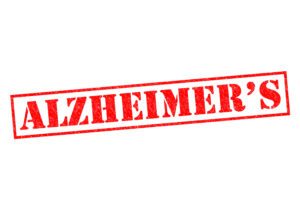The Main Stages of Alzheimer’s Disease
Home Health Care Salisbury NC

If your loved one was recently diagnosed with Alzheimer’s disease, there are three stages to be aware of.
Mild Alzheimer’s Disease (Early Stage)
During this stage, the senior will still be able to live an independent life with very little assistance needed. Although they are still able to drive, cook, and socialize, they will begin noticing frequent lapses in their memory.
Some signs that the elder is in the early stages of Alzheimer’s disease include:
Forgetting the names of people they were just introduced to
Have trouble coming up with the right word or name
Find it challenging to complete tasks in social settings
Increasing trouble organizing or making plans
Constantly misplacing or losing items
Moderate Alzheimer’s Disease (Middle Stage)
The next stage is slightly more severe, but the elder will still be able to function independently. It can last for several years before the disease progresses into the more severe stage. Once your loved one is in the Middle Stage, they may become easily angry or frustrated, have trouble concentrating, mix up words in conversations, or have changes in their behavior.
You may begin to notice that the elder:
Forgets moments and events in their own personal history
Becomes increasingly moody and irritable, especially when dealing with mentally or socially challenging situations
Frequently forgetting what day or year it is
Unable to remember their own address or phone number
Will need help choosing season-appropriate clothing
Becomes increasingly suspicious, compulsive, and delusional
Unable to control their bladder and bowel movements
Sleeps more during the day and less at night, or suffers from other sleep problems
Easily becomes lost or wanders more
Severe Alzheimer’s Disease (Late Stage)
By the time the senior reaches this stage, they will need 24 hour care from a trained home health care provider. They will no longer be able to hold a conversation with others, they may suffer from more severe changes in their behavior, and they will no longer be able to respond to their environment.
Other changes you will notice includes:
Lack of awareness of their surroundings or recent experiences
Needs constant assistance with daily activities and personal care
Finds it difficult to communicate
Increasingly prone to develop infections, like pneumonia
Knowing what to expect will better prepare you for the challenging journey you will be on with your elderly loved one. Talk to their doctor for more information on Alzheimer’s disease.
Source: http://www.alz.org/alzheimers_disease_stages_of_alzheimers.asp?type=alzFooter
If you or an aging loved one are considering Home Health Care Services in Salisbury NC, please contact the caring staff at Tender Hearted Home Care today. (704) 612-4132.
- Six Areas Your Loved One May Need Help With During the Early Stages of Alzheimer’s Disease - May 8, 2025
- What Harms Senior Mental Health? - April 23, 2025
- How 24-Hour Home Care Can Protect Your Senior Parent - April 4, 2025

